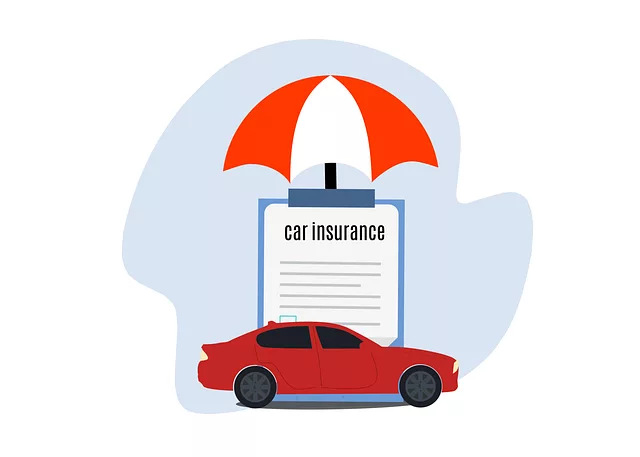When renting a car for short-term trips, understanding temporary car insurance coverage options is vital. These include liability, collision, and comprehensive insurance, each offering varying levels of protection against damages or accidents. Renters should carefully review these options, considering factors like rental duration, personal auto insurance, and the rental company's protections to ensure adequate coverage and avoid unexpected costs. Temporary car insurance shields both the renter and rental company from incidents like accidents, theft, or damage, providing peace of mind and liability protection. However, it doesn't cover high-risk activities, natural disasters, or unsecured vehicles. Renters should compare insurers based on cost and coverage, and promptly handle claims by documenting incidents and contacting their insurer.
Considering a short-term vehicle rental? Don’t underestimate the importance of insurance. This guide breaks down everything you need to know about insuring your temporary car, from understanding your needs to navigating common exclusions. We explore various types of coverage options available for short-term rentals, highlighting who benefits and how it shields you from financial burdens. Learn how to choose a reliable provider and master the claims process for seamless peace of mind while on the road. Discover the benefits of insuring your rental vehicle with our comprehensive overview, focusing on temporary car insurance coverage options.
Understanding Short-Term Vehicle Rental Insurance Needs

When renting a car for a short-term trip, whether it’s a few days or a couple of weeks, it’s crucial to understand your insurance needs. Unlike long-term leases, temporary car rentals often come with different liability and coverage options, which can leave renters unsure about what’s adequate protection. Familiarizing yourself with these options is essential to ensure you’re not left with unexpected out-of-pocket expenses in case of an accident or damage to the vehicle.
Temporary car insurance coverage options typically include liability, collision, and comprehensive. Liability covers damages you may cause to others’ property or injury to others; collision coverage protects your rental car from damage incurred during an accident; and comprehensive insurance covers losses due to theft, vandalism, or natural disasters. It’s important to review these options and choose what suits your needs, considering factors like the length of your rental, your personal auto insurance policy, and any additional protection offered by the rental company.
Types of Temporary Car Insurance Coverage Options

When considering insurance for short-term vehicle rentals, understanding the various temporary car insurance coverage options available is essential. These policies are designed to protect both the rental company and the renter during the period the car is in use. Typically, they offer liability coverage, which protects against damages or injuries caused to others, and collision coverage, which helps with repairs or replacements if the rented vehicle is involved in an accident.
Some options may also include personal injury protection (PIP) and medical payments coverage, which can help cover medical expenses for the renter and any passengers in case of an accident. Additionally, there might be options for comprehensive coverage, which protects against damages not related to collisions, such as theft or vandalism. Renter’s insurance is another important consideration, as it can fill gaps left by the policy provided by the rental company, ensuring that personal belongings are covered in case of loss or damage.
Who Needs Short-Term Vehicle Insurance?

Anyone renting a car for a short period, whether it’s for a weekend getaway or a temporary replacement while your regular vehicle is in repair, should consider short-term vehicle insurance. This type of insurance coverage is not mandatory in all cases, but it offers significant protection for both the renter and the rental company. It protects against unexpected incidents like accidents, theft, or damage to the rented vehicle during your temporary possession.
The need for short-term car insurance becomes more apparent when renting from private individuals or non-traditional rental services. Unlike rental agencies that provide comprehensive insurance packages, personal policies may have limitations or exclude short-term rentals. Thus, temporary car insurance coverage options become essential to ensure you’re not left responsible for substantial out-of-pocket expenses in case of an incident during your rental period.
Benefits of Insuring Your Rental Vehicle

Insuring your rental vehicle offers numerous advantages, especially for short-term leases. Firstly, it provides Temporary Car Insurance Coverage Options that safeguard you from financial burdens in case of accidents or damage. This is particularly crucial when renting for a few days, as you may not have time to arrange personal insurance or be aware of all potential risks. By insuring the vehicle, you ensure peace of mind and are protected against unexpected costs, such as repair bills or legal fees.
Additionally, having insurance can help you navigate unfamiliar driving conditions or areas with higher risk. It offers liability protection, covering damages you may cause to others’ property or vehicles, and personal injury protection in case of accidents. These benefits extend beyond just financial security; they also include access to roadside assistance services, ensuring a smoother and safer rental experience overall.
Common Exclusions and Limitations to Be Aware Of

When considering temporary car insurance for short-term rentals, it’s crucial to understand the common exclusions and limitations that come with such policies. While these plans offer convenient coverage for non-owners or those renting vehicles occasionally, they often have specific gaps in protection. For instance, many temporary policies exclude liability for damage caused by driving under the influence (DUI) or drug impairment, as well as losses resulting from reckless driving or intentional acts of vandalism. Additionally, certain high-risk activities like racing or off-road driving may not be covered.
Further limitations include exclusions for mechanical breakdowns, natural disasters, and theft if the vehicle is left unsecured. Some policies might also have mileage restrictions, where driving beyond a set number of miles per day could void coverage. It’s essential to read the fine print carefully to avoid surprises and ensure you’re protected against potential risks associated with short-term vehicle rentals. Understanding these exclusions allows you to make informed decisions when choosing the right temporary car insurance coverage options.
How to Choose the Right Insurance Provider for Your Temporary Vehicle

When selecting an insurance provider for your temporary car, it’s crucial to consider several factors to ensure adequate protection. Start by evaluating the specific needs of your rental period. Temporary car insurance coverage options vary widely; some policies are designed for daily drivers, while others cater to longer-term rentals or specific events like weddings or road trips. Understanding the duration and nature of your temporary use will help you narrow down suitable providers.
Next, research different insurers and their offerings. Look into the types of coverage they provide, including liability, collision, and comprehensive options. Check if they offer additional benefits like roadside assistance or rental car discounts. Customer reviews and ratings can also give insights into each provider’s reliability and customer service quality. Compare policies to find one that balances cost-effectiveness with robust temporary car insurance coverage options tailored to your needs.
Tips for Making Claims with Your Short-Term Insurance Policy

When making a claim with your short-term vehicle insurance, it’s crucial to act promptly and ensure all documentation is in order. Start by reviewing your policy documents thoroughly to understand the specific terms and conditions related to claims. Different temporary car insurance coverage options may have varying requirements, so familiarizing yourself with these is essential.
Next, gather all necessary information, including incident details, photos of any damage, and statements from witnesses or other parties involved. Contact your insurance provider as soon as possible to report the claim, providing them with accurate and complete information. Keep records of all communications and ensure you understand the next steps in the claims process to avoid delays or complications.



